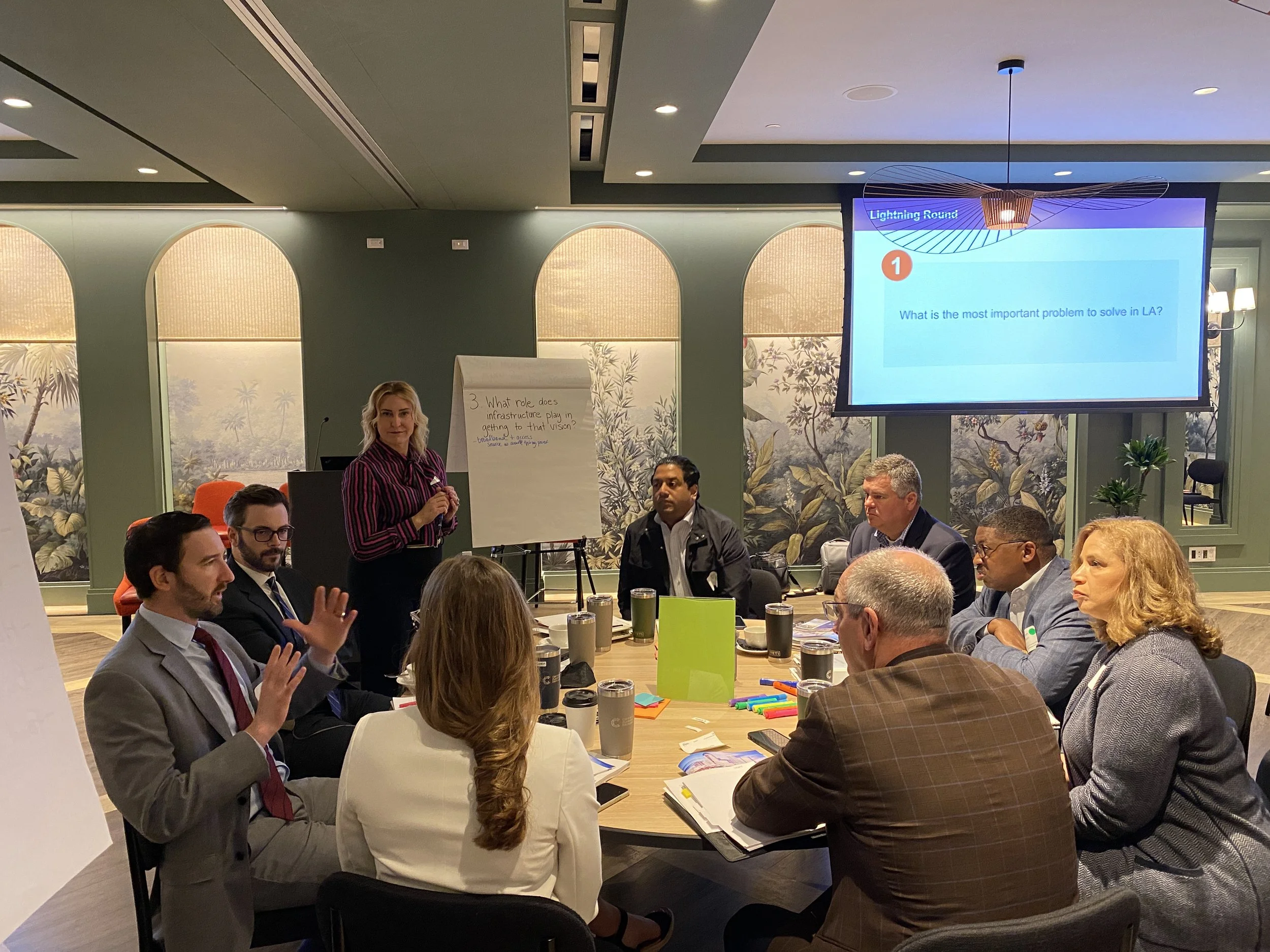In his address to state leaders and agency executives at the Resilient Infrastructure Workshop held in March, Governor John Bel Edwards described the Infrastructure Investment and Jobs Act as a “once in a generation opportunity to realize a more resilient and equitable future by strengthening Louisiana’s built environment and positioning the state for future economic success,” and issued a call to take action, stating, “We all have a role to play, and we must rise to the occasion.”
Recently released public policy rankings by the Reason Foundation highlight the dire need for infrastructure investment in Louisiana. Our state’s roads and bridges are ranked near the bottom nationally for poor quality and structural deficiency, and we hold a D+ rating from the American Society of Civil Engineers. Unfortunately, this isn’t news. Louisiana has had a backlog of infrastructure needs that has been growing for decades.
Upgrading our infrastructure is becoming even more urgent as we recognize the need to prepare for the reality of life on the front lines of climate change. We need a transformative approach to reviving our infrastructure – one that disrupts the cycle of disaster and response that has Louisiana in a perpetual state of reliance on federal disaster relief and constantly playing catch-up to our infrastructure needs. We need an approach that gets us ahead of our current and future needs based on what we already know about forthcoming climate change impacts, economic shifts, and population movements.
The bipartisan Infrastructure Investment and Jobs Act (IIJA) offers a once-in-a-generation opportunity to create the built environment and quality of life that will allow Louisiana communities to attract the talent we need and keep the talent we have – billions of dollars to be used for road repairs, public transportation, extreme weather preparedness,broadband expansion, modernizing the utility grid, electric vehicle charging stations, and more. However, these resources will not result in the improvements and advances we need unless our state agencies and elected officials have the capacity to put them to work for the good of our communities.
In order to help ensure that Louisiana is ready to take advantage of the funding available, CPEX hosted the Resilient Infrastructure Workshop on March 7-8. In partnership with the Division of Administration, we convened state agency executives, nonprofit leaders, and federal officials to develop a shared understanding of the scope of opportunity, priority criteria for competitive funding, and the steps Louisiana must take to develop competitive projects and funding applications that advance our climate adaptation, economic development, resiliency, and community development goals.
The IIJA is based on four guiding principles: Equity, Labor, Climate, and Made in America. With these principles in mind, CPEX facilitated discussions and led activities focused on state agency priority setting, cross-agency collaboration, and next steps for developing the capacity needed at the state and local levels to position Louisiana competitively for these funds.
We know that, in Louisiana, our need for climate-resilient infrastructure is urgent, and our infrastructure deficiencies impact our poorest residents the most, creating inequities in exposure to risk and access to essentials such as affordable transportation, clean water, reliable energy, and safe housing. Our state also has a talented workforce that can be trained and employed to build the infrastructure needed to address these pressing issues, and we’re fortunate to be approaching these opportunities with an existing commitment to climate action, as the Governor’s Climate Initiatives Task Force has recently approved the Gulf South’s first state Climate Action Plan. By making the connections between our needs and the IIJA guiding principles clear, state and local officials will be able to design projects that are competitive for top-level grant funding.
We will not likely see such an opportunity for investment in Louisiana again in our lifetime. In order to seize it, we must be clear-eyed about the gaps in our capacity at both the state and local levels to develop shovel-worthy projects, competitive proposals and administer federal grant funds – and be willing to direct resources towards building the capacity needed now so that we can reap exponential returns for decades to come. Our legislators can help set aside the funds we will need for matches – specifically, the AARPA funds Louisiana has can be used for this purpose. Sectors, jurisdictions and elected officials must collaborate to align priorities and build partnerships.
At the end of the day, it’s not just about infrastructure. Too many of our communities struggle with systemic poverty exacerbated by an unsafe built environment and repeated climate change-driven disasters. This is an opportunity to break the cycle of never-ending disaster response, support marginalized communities with meaningful projects, and plan for a more resilient and secure future. It’s time to support our communities all the time, not just in times of crisis. Let’s seize this moment and invest in our home, our people, and our future with people-first infrastructure.

